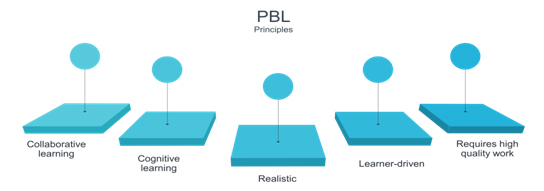Qualifying skill gap between Academia and Industry
“Education could be learning but learning has to help others learn, then this loop would be called The Knowledge.”
Traditional education is in a state of flux due to industry needs to develop engineering graduates with wider skills. Technological advancement and availability of information are transforming the way students learn. As global competition increases, the competitiveness of graduates is creativity, transformative skills, innovative solutions, etc. Moreover, mainstream engineering education follows traditional classroom teaching that mainly focuses on the lecturer and student has very little choice on the learning process. This approach is effective in many cases. However, for many students, this approach proves to be rigid: results in poor learning and lack of desired skills required in the industry. In general, the important points that differentiate academia with industry are
| University | Industry |
| A “problem deficit” | Problems to solve (a “Solutions deficit”) |
| Research expertise | Technology and experience |
| Training skills | A need for qualified staff |
| Students looking for Jobs | Limited budgets |
According to many recent surveys, the GDP of India (construction industry) will be $1 trillion by 2030, which will require more than 4 Lakhs civil engineers. Are our universities ready for that? The question is important since in the current scenario our engineering graduates lack the desired skills to start their careers in the industry. It also results in depression among graduates who often start exploring a career in other sectors due to unemployability in their area of study. This not only results in waste of nations resources (youth, time, energy, money) but also makes our youth a highly unsatisfied citizen. The major problem with our engineering graduates is the lack of desired skills that would make them job-ready engineers. The skill gap is primarily because of
- The curriculum is not keeping pace with current technology and demand of the industry
- The focus of the university is more on academics and less on the practical application
- No industry exposure for setting up a real-life expectation
- Mind-set from students that knowledge earned from degree is sufficient to survive in the corporate world
- Many faculties are demotivated which affects education quality
- Even though project work is there but it is not evaluated on quality parameters: in the industry, any project assigned is evaluated on quality and productivity in the given timeline
- Soft skills development is not covered in the curriculum of many universities: innovation, team spirit, communication, reasoning, attitude, learning ability, commitment…

Project based learning (PBL) can be at least a good complement to conventional educational approaches, as there is always the necessity of conventional courses to give students the required basic knowledge. PBL is widely regarded as an effective and innovative method for engineering education that introduces the students to professional engineering practice by providing an opportunity for them to work on an open-ended engineering problem. PBL provides an opportunity for the above-discussed challenges where the student accepts control of what needs to be learned and how it should be learned. There are many definitions and approaches to PBL. It can be explained as a dynamic classroom approach in which students actively explore real-world problems, challenges and acquire a deeper knowledge. It encourages students to learn and apply knowledge and skills through an engaging experience tied to college and career readiness. PBL principles are based on

PBL activities are organized on a project progress process. They are based on the planning phase, through the building phases, and to organizational phases from a civil engineering perspective. At K-Structura PBL methodology involves a balanced blend of technical competence and practice along with industrial exposure and soft skills. The students work in an industry like environment. Our learning modules are specially designed considering industry needs. This will empower civil engineering students with necessary industry skills that would make them job-ready engineers (Employability enhancement).

